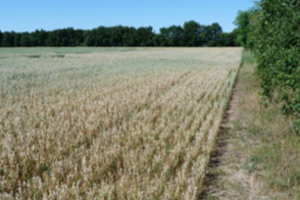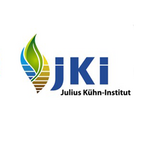Yield development and optimised N fertilisation in a changing climate (KlimaN)

Objective
Increasing climate variability raises yield variability and thus makes it more difficult to apply N fertiliser in line with demand. As a result, the risk of unused N increases. KlimaN investigates how the possible increase in unfavourable weather patterns under climate change affects N use and develops strategies for N fertilisation and fertilisation policy adapted to climate change.
Methodology
- Analysis of German farm data on yields and N-fertilisation with special consideration of extreme weather conditions
- Simulation of different N fertilisation strategies and other adaptation strategies such as variety selection under the conditions of climate change for relevant production regions in Germany until the end of the century using process-based agroecosystem models
- Evaluation of different N fertilisation strategies taking into account farm risk management and quality-relevant late N fertilisation (especially for wheat) in early summer and analysis of options to adapt fertilisation policy to climate change
Climate effect under consideration
Reduction of N2O emissions by reducing nitrogen surpluses on agricultural land
Publications
Laidig F, Feike T, Brandes H, Piepho HP (2025): Breeding progress of grain and forage maize in long-term variety trials compared to on-farm yield development. Theor Appl Genet 138 (2025) 303. doi.org/10.1007/s00122-025-05085-6
Laidig, F, Feike, T, Lichthardt, C, Schierholt, A, Piepho, H P (2024): Breeding progress of nitrogen use efficiency of cereal crops, winter oilseed rape and peas in long-term variety trials. Theoretical and Applied Genetics. 137, 45. https://dx.doi.org/10.1007/s00122-023-04521-9
Löw P, Osterburg B (2024): Evaluation of nitrogen balances and nitrogen use efficiencies on farm level of the German agricultural sector. Agric Syst 213:103796, DOI: DOI: https://doi.org/10.1016/j.agsy.2023.103796
Data sets and products
Duden C, Nacke C, Offermann F (2024): German yield and area data for 11 crops from 1979 to 2021 at a harmonized spatial resolution of 397 districts. Sci Data 11:95, DOI:10.1038/s41597-024-02951-8
Contact persons
JKI, Institute for Strategies and
Technology Assessment




